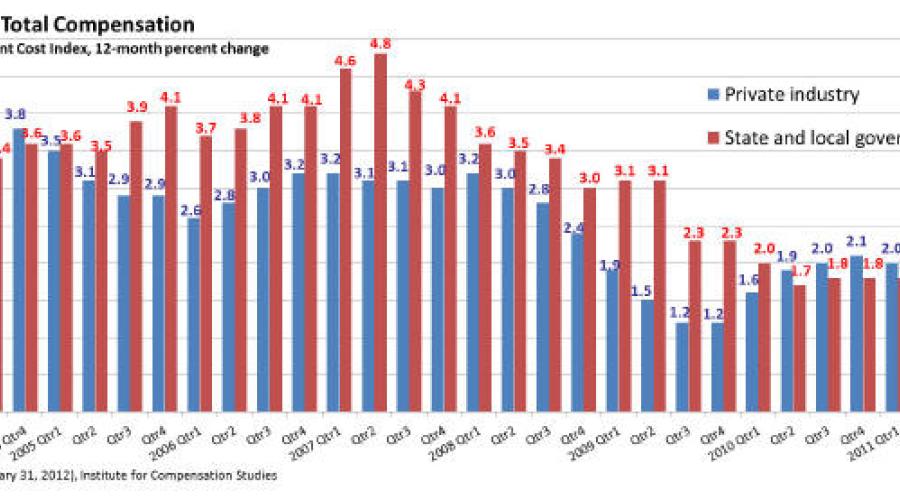
A Deeper Look
National reports this week on employee compensation – a hot-button election issue – might appear contradictory.
Realize the reports measure different data sets, advises Linda Barrington, managing director of the Institute for Compensation Studies at Cornell's ILR School.
"The average taxpayer might ask, 'which report is right? Are government workers overpaid or not?' It’s not a matter of one report being wrong and the other being right. The two reports are looking at different government workers and also measuring different numbers," she said in an interview.
The Congressional Budget Office report concluded that federal employees are compensated at a higher rate than their private sector peers, while this week's Employment Cost Index from the Bureau of Labor Statistics revealed that total compensation for state and local government employees rose 1.3 percent during the previous 12 months, Barrington pointed out.
"This is the lowest year-on-year increase for public sector compensation since the series began in June of 1982, and notably lower than the 2.2 percent increase for private sector employees." she said.
The budget office report, explained Barrington, analyzes the level of compensation – what is the dollar value of pay. The cost index measures the increase or percent change in compensation – how much pay has increased over the past 12 months.
"The budget office report examines compensation of only federal employees, while the Employment Cost Index measures compensation costs for state and local employees," she said.
"Looking at the cost index report, there is no doubt that the compensation of state and local employees is under pressure. With inflation at 3.0 percent, the 2.2 percent increase in compensation costs in the private sector isn't keeping pace. But, the 1.3 percent increase in state and local governments is losing pace even faster."
"The question the budget office report is asking is not whether compensation costs are being compressed by state and local governments. There is no debate there, they are. The report is trying to establish if, for the federal government, the current level of pay is higher than the same kind of employee would make in the private sector -- ignoring how fast or slowly that pay is growing."
"In other words, are federal employees and private employees paid comparably for comparable work? The budget office says 'no,' but I am sure that won’t be the final word on the matter."
Commentary by the Institute for Compensation Studies on the Employment Cost Index report released this week can be viewed at http://www.ilr.cornell.edu/ICS/news/01312012-USEmploymentIndexQ42011.html.


